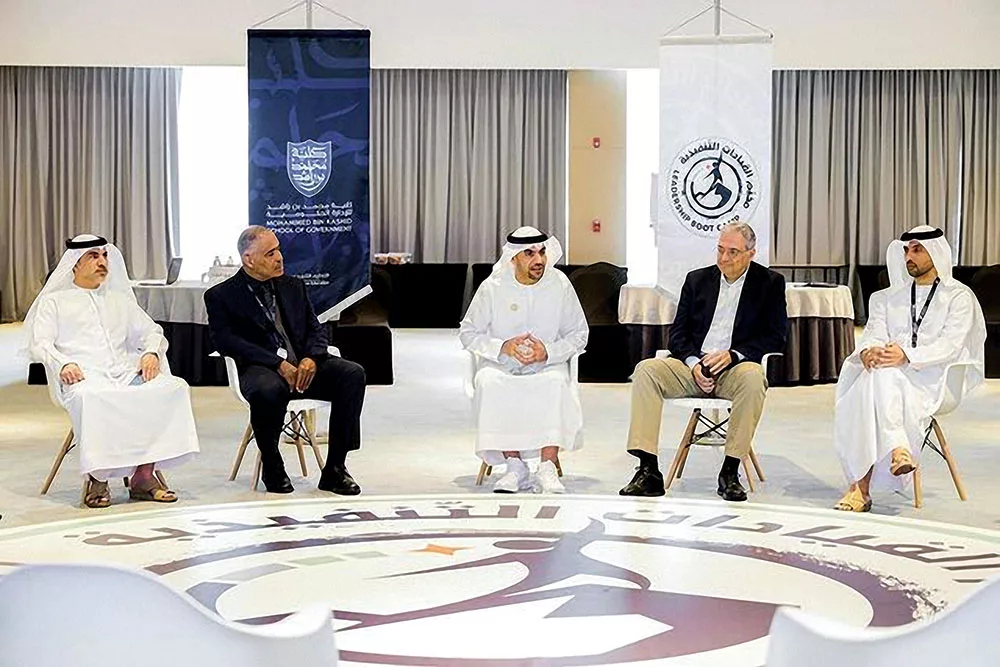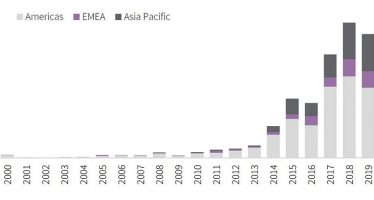Accenture on Generative AI: Surfing the Next Wave of Digital Transformation
Artificial intelligence is here to stay, and, with suitable caution that should be a good thing, argues Bashar Kilani.
Generative AI will define the next wave of digital transformation.

Workshop on GenAI
Over recent decades, we have witnessed the “webification” of applications, followed by the dominance of smartphone apps. Generative AI offers another revolutionary shift — allowing users to engage with applications in any language.
It could boost individual and organisational productivity, but there are ethical implications — and potential risks — to discuss.
User Engagement
In the first instance, Generative AI is likely to affect banking, government services, and airlines. Previously, customers had to physically visit bank branches or government offices. The introduction of call centres brought some convenience, but they too relied heavily on human assistance. Internet banking and e-government services emerged, enabling users to perform transactions online, enhancing accessibility and efficiency. Mobile apps further streamlined the user experience.
Now generative AI introduces natural language interfaces that will, its proponents say, revolutionise user interactions, and provide unprecedented convenience and satisfaction for humans.
Natural Language Interface
Powered by deep-learning algorithms and neural networks, AI has made significant progress in understanding and generating human-like text. This enables applications to interpret and respond to user queries in a conversational manner.
In the banking sector, customers can use “natural language” to check balances, transfer funds, or receive personalised financial advice. Government service platforms can process complex requests, provide information, and offer guidance. Airlines can offer automated ticket bookings, travel recommendations, and real-time flight updates.
Multilingual and Topic Diversity
Generative AI can expand the range of topics for user engagement. By processing and generating text in multiple languages, applications become more inclusive and accessible to a global audience.
In banking, customers can interact with applications in their preferred language, wherever they are. Government service platforms can communicate with people from diverse linguistic backgrounds, and so can airlines.
Boosting Productivity
The new technology has the power to enhance productivity; studies project that average productivity will increase by 30 percent by 2025, with varying impacts across sectors. Blue-collar jobs are expected to see a 10 percent productivity boost, while creative jobs could get a 60 percent surge. Programmers, for example, are set to benefit from generative AI tools like GitHub, which streamline coding processes and automate repetitive tasks. By taking on mundane or time-consuming activities, generative AI empowers individuals to focus on higher-value tasks.
Ethics and Potential Risks
While all this holds tremendous promise, it also raises ethical considerations. The potential misuse of AI-generated content — spreading misinformation, creating fake identities, or manipulating data — is a significant concern. Robust security measures, stringent data privacy regulations, and continuous monitoring are crucial.
Also essential for fair and ethical outcomes are transparency, responsible data use, and accountability for decision-making.
Generative AI represents a transformative force that will redefine user interactions and enable convenient engagement across sectors. Its multilingual capabilities foster inclusivity. It has the potential to boost productivity.
But it is crucial to navigate the ethical implications and potential risks, ensuring responsible deployment and building trust. By addressing these considerations, we can pave the way for a productive future with improved user experiences, and ethical tech advances.
About the Author
Bashar Kilani is Managing Director at Accenture based in Dubai and a member of the Growth Markets leadership team focusing on Digital Economy market making trends that accelerate growth, transform operations, and enable organisations to build their digital core.
You may have an interest in also reading…
Women’s Brain Project – Shattering the Status Quo: Investing in Women in STEM
Representation matters. The now classic TV show The X-Files starring David Duchovny and Gillian Anderson inspired more women to pursue
CBRE: Tech Adoption Accelerating Across Real Estate Industry
The expanding deployment of technology, from connectivity and hardware upgrades to machine learning and AI, means that almost every feature
The Evolution of Online Search: The Role of Artificial Intelligence
The integration of artificial intelligence (AI) into online search engines is redefining the accessibility and efficiency of information retrieval, profoundly


















































































